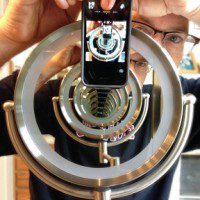The brain is getting plenty of attention these days. Based on scientific study of the brain, all sorts of people are weighing in on how the brain thinks and the implications for individuals, relationships, and culture. If you’re not a specialist, and if you don’t have time to read extensively in the “brain” literature, it’s hard to keep up.
 A recent book review the New York Times makes this a little easier. Christopher Chabris, a psychology professor at Union College, surveys three recent books on the brain in his review, “Is the Brain Good at What It Does?”
A recent book review the New York Times makes this a little easier. Christopher Chabris, a psychology professor at Union College, surveys three recent books on the brain in his review, “Is the Brain Good at What It Does?”
Brain Bugs: How the Brain’s Flaws Shape Our Lives, by Dean Buonomano
Now You See It: How the Brain Science of Attention Will Transform the Way We Live, Work, and Learn, by Cathy N. Davidson
The Compass of Pleasure: How Our Brains Make Fatty Foods, Orgasm, Exercise, Marijuana, Generosity, Vodka, and Gambling Feel So Good, by David J. Linden
I must admit that I find the subtitle to Linden’s book the most intriguing.
Near the end of his review, Chabris refers to a study of monkey’s, one featured in The Compass of Pleasure, that suggests that human beings may very well get pleasure from taking in bits of information. Chabris makes a connection to how human beings interact with the Internet:
If this discovery proves reliable, it implies that the Internet doesn’t change our brains at all, for good or for ill. It doesn’t damage brain areas, destroy links between parts of our brains, or grow new areas or connections. What the Internet does is stimulate our reward systems over and over with tiny bursts of information (tweets, status updates, e-mails) that act like primary rewards but can be delivered in more varied and less predictable sequences. These are experiences our brains did not evolve to prefer, but like drugs of abuse, they happen to be even better suited than the primary reinforcers to activating the reward system. So if you find yourself stopping every 30 seconds to check your Twitter feed, your brain has no more been rewired than if you find yourself taking a break for ice cream rather than celery. Picking the more rewarding stimulus is something our brains can do perfectly well with the wiring they start out with.
If this sounds interesting, go check your email and Twitter feed and then read Chabris’ review.











